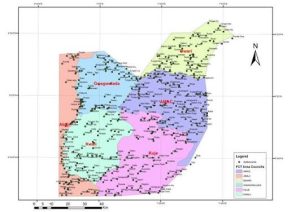
By Augustine Eigbe, Ph.D
The charred villages and mass graves in Benue State stand as grim monuments to the failure of the 1999 Nigerian Constitution’s Section 14(2)(b), which promised that ‘the security and welfare of the people shall be the primary purpose of government.’
The constitutional mandate degenerates into cruel satire amid the state’s unrelenting bloodshed. Coordinated terrorist and bandit attacks slaughter villagers, forcibly displacing thousands from their ancestral homelands. These killings are the direct result of a systemic failure to uphold the most basic function of government. It mirrors the constitution’s duality, noble on paper yet dysfunctional in practice.
What makes these killings particularly unconscionable is their predictability. The constitutional mandate of ‘public safety’ has been overtaken by an unsurprising cycle of impunity where warnings go ignored, perpetrators remain unpunished, and mass burials become normalised.
The systematic extermination of families in their homes, the burning of children alive, and the forced displacement of entire communities cannot be characterised as farmers and herders ‘clashes.’ These constitute crimes against humanity exhibiting genocidal patterns.
This cycle has repeated for years, and each time the government pledges to ‘bring perpetrators to justice,’ but not a single high-profile prosecution has occurred. Instead, victims watch as killers walk free, shielded by a broken justice system.This is not merely a governance failure or breakdown; it constitutes moral dereliction, as the government’s inaction embeds complicity.
The bloodstained soil of Benue State demands justice, not empty platitudes. True reconciliation cannot grow from the shallow soil of political rhetoric. It requires the government to act, unequivocally fulfilling its constitutional duty to security and justice.
The people of the state need no more promises; they need proof that their government values their lives. Reconciliation demands action, not press statements. The mass murderers must face justice, displaced farmers must return safely, and killers’ sponsors must be exposed. Otherwise, the wounds will remain indelible for generations to come.
Without justice for the rivers of blood spilled across its villages, the state can achieve no true reconciliation: no healing, no closure, no peace. These massacres transcend mere tragedy; they are crimes against humanity that demand swift prosecution through the justice system.There can be no reconciliation while the architects of these atrocities remain free to plot the next round of killings.
True peace cannot be built upon unmarked graves and unpunished crimes.Justice delayed has become justice denied through a cruel cycle of violence and empty rhetoric by the government. The path to sincere reconciliation must begin with uncompromising truth. It must be acknowledged that these are not spontaneous clashes between farmers and herders, but rather coordinated campaigns of terror by marauding killers.
Until the government protects all Nigerians equally, prosecutes perpetrators decisively, and ensures displaced families return safely, true reconciliation will remain historical fiction, its promise nothing but an insult to the dead and betrayal of the living.
Augustine Eigbe, Ph.D, ANIPR is historian and development communication expert.Email: augustineeigbe20022002@gmail.com



